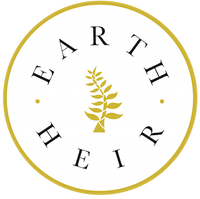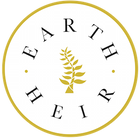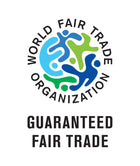Weaving a Living: How We Work with a Trafficking Survivor
Written by Earth Heir Founder, Sasibai Kimis
I first met T.* in 2012 at a shelter for abused and women rescued from trafficking. We were working with the women in the shelter to stitch our labels on Earth Heir scarves, this was to enable the women to earn some income while they were at the shelter. During my time with the women, I was excited to learn that T.’s family were also weavers of silk in Cambodia. Cambodia is the only Asian country where 100% of its silk is still hand-woven.
During one of my trips to Cambodia, I called T. and arranged to visit her family home. Then began a 2 1/2 hour journey to her village, which involved taking the car in a raft like boat to cross a river!
When we arrived, T. and her family were so gracious to us, they had prepared an elaborate lunch which we ate in the cool, shaded area below their wooden home. We sat with T. and met all of her family, her daughter, and talked about their family life and circumstances.



They didn’t have electricity in their village as most homes could not afford the US$ 400 charged for a connection to be established, so they mostly survived on oil lamps during the night. Most homes also do not have good sanitation and access to toilets. The women and men in T.’s family would head back behind their wooden home for sanitation needs.
Cooking is mostly done with firewood as most families in her village cannot afford stoves or paying for gas to power the stoves. We were very touched by the welcome that T.’s family gave to us. Soon we began looking through the scarves woven by T.’s sister-in-law and as we discussed prices, I realised that buying directly from the weavers in the villages is actually more expensive than buying from the wholesalers in the city – the main reason being that even as the prices of imported silk yarn has been rising steadily, weavers are being squeezed by wholesalers and middlemen to produce at extremely low prices. So most weavers sold their produce with little profit for their labour and many silk weavers are now working extremely close to their margins.

At Earth Heir, our primary aim is to support the weavers to earn a sustainable income which in turn helps to preserve these ancient skills from disappearing entirely. We paid T.’s family above market prices knowing that this money goes directly to support their family. We often get asked why our silk scarves are more expensive than machine made silk:
- The silk is hand-spun, hand-dyed and hand-woven. It truly is a labour of love. A factory could perhaps make 1000 pieces of scarves a day, while a simple handwoven scarf may take 1-2 weeks to complete.
- We practice fair-trade and ethical partnerships with the craftspeople that we work with, which means we seek to support them directly (as much as we can). This means we are not buying from middlemen in cities, but are working directly with weavers villages or cooperatives and spend many hours travelling to get to weaving villages.
The result of this is knowing that each piece is made lovingly by hand by a human being and the craftsperson or cooperative is being supported by your purchase. And it will be limited edition or unique, unlike mass produced pieces.

Thank you T. for working with us!









